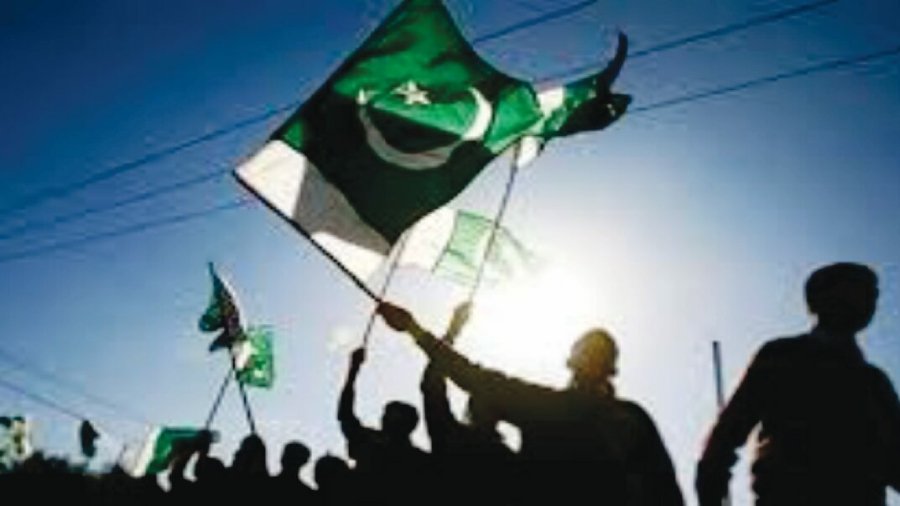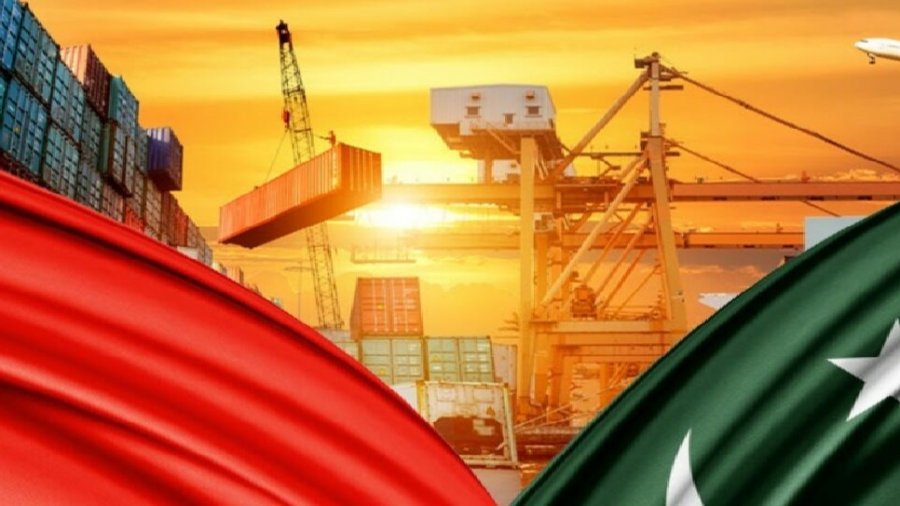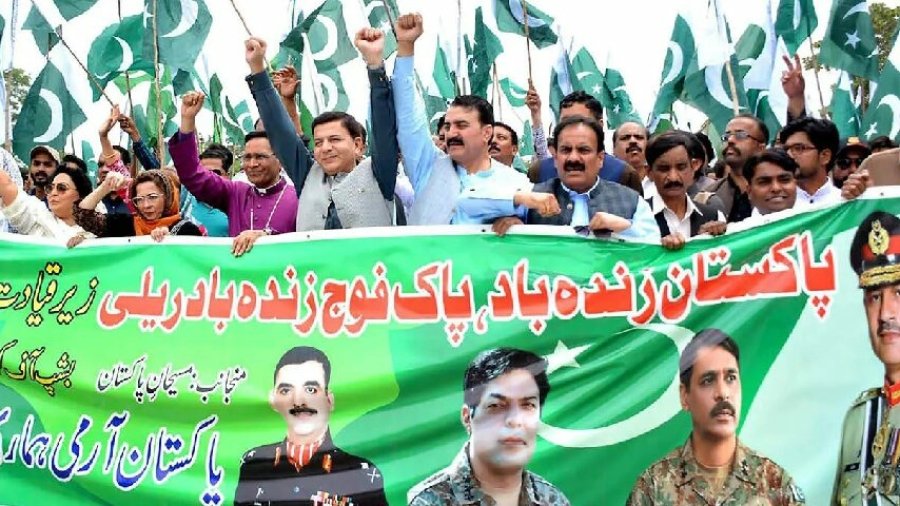Stability First: KP Political Leadership Must Prioritize the Development of the Province
Hassan Sajid
Unblocking Opportunities: How the Revival of CPEC Spells Success for KP and Beyond
Laila Sadaf
CPEC (China Pakistan Economic Corridor), the flagship project of China’s Belt and Road Initiative, has the potential to turn around the dwindling economy of Pakistan and amplify its growth. It is a transformative venture that aims to establish regional connectivity and develop the overall infrastructure of Pakistan. Meanwhile, Pakistan is already harvesting the early fruits of development by successfully operationalizing the first phase of CPEC. CPEC is now expected to see renewed momentum in its second phase after the official visit of Prime Minister (PM) Shehbaz Sharif to China in June this year. CPEC’s potential for unlocking opportunities and fostering sustainable economic growth in Pakistan, particularly in the province of Khyber Pakhtunkhwa (KP), is abiding.
The decision to upgrade CPEC by constructing multiple additional corridors, including rapid and devoted industrialization, investments towards the modernization of the agriculture sector, technological innovations, and green corridors, were the meeting’s main agendas during PM visit to China. Additionally, a promise has been made to maximize the usage of the Gwadar port and renovate the Karakoram Highway to further facilitate transportation. Along with these, it was decided that one thousand young Pakistanis would get tech and agriculture training from the Chinese side. Huawei will annually provide IT training to 200,000 children in Pakistan.
These commitments would support the youth to develop and utilize their skills towards the development of e-governance and the digitalization of the economy.
Pakistan agreed to “optimize its business environment and policy framework” to facilitate Chinese investments as the key agenda of CPEC’s second phase. The Chinese representatives also promised to encourage Chinese businesses to make investments in Pakistan’s Special Economic Zones (SEZs). Establishing industries and subsidizing the existing industries is the need of the hour for the waning economy of Pakistan, as they hold the prospect of providing job opportunities for our young people across the province.
The situation, however, does not seem quite promising. The establishment of SEZs has been incredibly delayed due to various economic and political reasons. Dhabeji is still in the bidding phase, while the Rashakai project has made only modest headway. Rapid development and operationalization of SEZs ought to be a primary goal of the government of Pakistan to draw in investments not only from China but other nations. Moreover, Pakistani businesses that have rolled back their investments and hoarded their money outside due to the uncertain economic conditions of Pakistan need to be encouraged and facilitated to invest in their native country to promote financial influx in Pakistan.
Furthermore, another project of significance is the upgradation of the ML-1 (Main Line-1) railway track to be implemented in a phased manner after agreeing on financing modalities. It includes the upgradation and doubling of ML-1 from Karachi to Peshawar and Taxila to Havelian, the rehabilitation and construction of major bridges, and the provision of modern signaling and telecom systems. The north-south railway track is 100 years old; therefore, its upgradation is imperative to meet our strategic and socioeconomic needs and bring about revolutionary developments in the railway sector. It has the capacity to provide thousands of jobs to the local people and amplify the exports by providing safe and short trading routes.
The CPEC project has certainly helped Pakistan significantly develop its power and transport infrastructure sectors. Based on the achievements of CPEC in its first phase, the second phase—mostly based on business-to-business cooperation—is expected to yield further economic surplus for Pakistan, besides translating those benefits into higher productivity, growth, and exports through Chinese investments in manufacturing, agriculture, and technology.
In addition to the above-mentioned key agendas of the second phase, Pakistan is also engaging the Chinese leadership for the renewal of more than 1,800 megawatts of hydropower projects (HPPs) and investment from fresh Chinese companies in the Counter country’s transmission and distribution network as part of the second phase of the CPEC. It will help Pakistan get rid of its long-standing dependency on imported power production and the menace of electricity shortages prevalent whiningly across the country and specifically in KP. Besides these fresh investments in transmission projects, Pakistan is also inclined towards pursuing Chinese firms to enter the distribution sector, as the government urges private sector participation, including through privatization or long-term concession agreements.
Thus, to make the second phase of CPEC a success, it is necessary that the government should draw lessons from earlier experiences and failures and plan a doable and long-term project along with Chinese counterparts. There is a need to ensure transparency throughout the entire program, from the conceptualization of the projects to their operation. Pakistani government needs to understand that any program that relies excessively on any other nation for financial assistance is not good for the country. The best course of action is to limit the program with pragmatic and efficient strategies for its materialization and to keep a modest size of it, to carry it out at its natural pace and without much fanfareHence, it could rightly be said that the CPEC project still has great potential for the development of Pakistan, despite the hurdles, and could bloom into a ripe fruit if those are removed.
Rallies on 9th May: A Gesture of Solidarity with Pakistan Armed Forces
A year after the incidents of May 9, 2023, the Pakistani nation came out in favor of its valiant security forces, holding rallies across the country to send a clear and strong message to all the centrifugal forces who, under the cloak of politics, want to destabilize Pakistan. Through these rallies, the Pakistani people announced that they trust the Pakistan military not only as an institution but also as a binding force that keeps the state together against all internal and external threats.
Massive rallies were held in almost all major cities, with people from all walks of life participating to express their support and trust in the Pakistan Army and other security forces. May 9, 2023, will remain a Black Day in Pakistan’s history. On this dark day, politically motivated and brainwashed miscreants, in an act of political upheaval, purposely resorted to violence against state institutions, destroying sacred symbols of the state and sites belonging to national heritage. This is certainly not how political parties should behave, and in Pakistan, such an event was previously unthinkable, where mindless and senseless mobs vandalized historic military landmarks across the country.
The federal government commemorated the day to express solidarity with martyrs and their families. In KP, rallies and processions were held across the province, mainly in Peshawar, Mardan, Swabi, DI Khan, Lakki Marwat, Tank, and Charsadda, where people expressed solidarity with Pakistan Army. During their speeches and slogans, they stated that they would not tolerate the desecration of martyrs and that the perpetrators must be punished for such wrongdoings. Sentiments like these were more visible in Swabi, the hometown of Kargil war hero Captain Karnal Sher Khan, whose monument was also vandalized by the rioters on May 9, 2023.
Similarly, in Sindh, rallies were organized by the public in general in Sajawal, Thatta, Badin, Hyderabad, Sukkur, Tando Muhammad Khan, and Kashmore, among other places. In Larkana, Jacobabad, and other cities, people raised slogans in favor of the Pakistan Army. The participants were carrying various placards filled with slogans of love and solidarity with the Pakistan Army. They expressed their emotions and love, stating that the love for the army cannot be erased from the hearts of the people.
Despite the fact that the political party involved in the May 9 mayhem is shamelessly accusing the Pakistan Army and intelligence services of orchestrating this unfortunate incident, Pakistan Army, through a press conference by the DG ISPR, announced they would move on if those involved in this crime seek pardon from the nation and vow not to repeat it in the future. Unfortunately, this was taken as a sign of weakness yet again, and more accusations were raised without an iota of proof. This raises a big question mark over Pakistan’s judicial system and its ability to lawfully deal with such anti-state elements in national politics. The Pakistani nation also seeks justice for its heroes who made the ultimate sacrifices for the safety and security of the motherland.
Questions over the judiciary’s inability to punish the perpetrators of May 9 were also raised during the rallies held across the country. The participants expressed their dissatisfaction and questioned why these evil elements continue to escape punishment under the law of the land. These same sentiments also exist in the rank and file of the Pakistan Army and sister forces regarding these miscreants. Pakistan’s judiciary and government must overcome all the legal loopholes in the legal framework to ensure that not a single person involved in this carnage goes unpunished. Additionally, those tried in military courts must also be put on speedy trials in anti-terrorism courts in light of the evidence gathered by security forces and intelligence agencies. This is critical because no one in the world will respect Pakistan as a sovereign state if the sanctity of its armed forces is compromised, as they are the guardians of the homeland. May 9 was not a protest; it was a mutiny against the state, and mutinies are dealt with an iron fist all over the world.
The government has vowed to bring these people to justice as per the nation’s demand, while the Pakistani masses are looking to the judiciary to swiftly provide justice to the martyrs, veterans, and heroes of the nation. Pakistan has spoken in solidarity with its armed forces, and this trust and bond with the nation is the biggest strength of the Pakistan armed forces, as has been expressed many times by COAS Gen Asim Munir in recent months. InshaAllah, with this trust, Pakistan will continue to move forward, defeating the nefarious designs of evil within and without.
Pakistan Zindabad!






